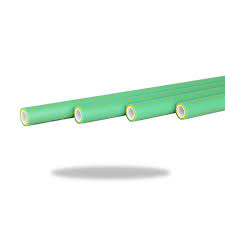Oct . 18, 2024 22:37 Back to list
Applications of PVC Pipes in Industrial Settings and Their Benefits for Factories
The Use of PVC Pipe in Factories A Comprehensive Overview
Polyvinyl Chloride (PVC) has established itself as one of the most widely used materials across various industries, particularly in factory settings. Its versatility, durability, and cost-effectiveness make it an ideal choice for a multitude of applications in modern manufacturing. In this article, we will explore the reasons behind the popularity of PVC pipes in factories, their applications, benefits, and even some considerations regarding their use.
What is PVC?
PVC is a synthetic plastic polymer that is extensively used in the production of pipes, fittings, and other products. Created through the polymerization of vinyl chloride, PVC can be formulated to meet a vast array of requirements. It can be made rigid or flexible, depending on the desired outcome. This adaptability is what has made PVC such a dominant player in industrial applications.
Applications of PVC Pipes in Factories
One of the primary uses of PVC pipes in factories is for fluid transportation. They are used to convey water, chemicals, and other liquids essential for various manufacturing processes. PVC pipes are particularly favored because they do not corrode like metal pipes, making them suitable for transporting acidic or alkaline substances.
Additionally, PVC pipes can be found in drainage and waste systems within factories. These pipes efficiently remove wastewater and hazardous effluents, ensuring compliance with environmental regulations. Furthermore, PVC’s lightweight nature facilitates easier handling and installation compared to traditional materials like steel or concrete.
Another area where PVC pipes excel is in the electrical conduits sector. They are widely used to protect electrical wiring in factories. Their non-conductive nature makes them excellent insulators, ensuring safety in the workplace.
Benefits of Using PVC Pipes
1. Durability PVC pipes are highly resistant to environmental factors, such as moisture, corrosion, and UV exposure. This durability means that they have a long lifespan, reducing the need for frequent replacements.
pvc pipe used for factories

2. Cost-Effective One of the most significant advantages of PVC pipes is their affordability. They are cheaper than many alternatives, resulting in lower initial costs for factory installations. Furthermore, their longevity contributes to reduced maintenance expenses over time.
3. Ease of Installation PVC pipes are lightweight, making them easy to transport and install. The installation process is generally straightforward, which can save factories both time and labor costs.
4. Chemical Resistance As mentioned earlier, PVC pipes can handle a wide range of chemicals without degrading. This characteristic is particularly valuable in factories that utilize various substances in their manufacturing processes.
5. Low Thermal Conductivity PVC’s insulating properties mean it can help conserve energy in temperature-sensitive applications. This feature is especially beneficial in factories dealing with temperature-controlled environments.
Considerations
While PVC pipes offer numerous advantages, there are some considerations to keep in mind. For instance, extreme temperature fluctuations can affect PVC's performance. High temperatures may lead to deformation, while very low temperatures can make the material brittle. Therefore, factories must consider the specific temperature range of their applications when opting for PVC.
Additionally, the environmental impact of PVC production and disposal is a topic of ongoing debate. PVC is made from petroleum, raising concerns about its sustainability. Factories committed to sustainability may want to consider alternative materials or ensure proper recycling of PVC products.
Conclusion
PVC pipes have become integral to modern factory operations due to their versatility, durability, and cost-effectiveness. They are extensively used in fluid transportation, drainage, and electrical conduits, making them essential components in various industrial applications. While there are some considerations regarding their use, the advantages they offer often outweigh potential drawbacks. As manufacturing processes continue to evolve, PVC pipes will likely remain a key player in factory infrastructure, contributing to efficiency, safety, and sustainability in the manufacturing sector.
-
32mm HDPE Pipes in Coil: Durable, Flexible, Easy Install
NewsAug.10,2025
-
140mm PVC Drilling Pipe: Durable & Efficient Well Casings
NewsAug.09,2025
-
Flexible DN50 HDPE Pipes in Coils: Durable & Easy Install
NewsAug.08,2025
-
DN100 PVC Pipes for Well Casings | Durable & Corrosion-Proof
NewsAug.07,2025
-
Durable DN500 HDPE Double Wall Corrugated Drain Pipes
NewsAug.06,2025
-
32mm HDPE Pipes Coil: Durable & Flexible Water Supply
NewsAug.05,2025

